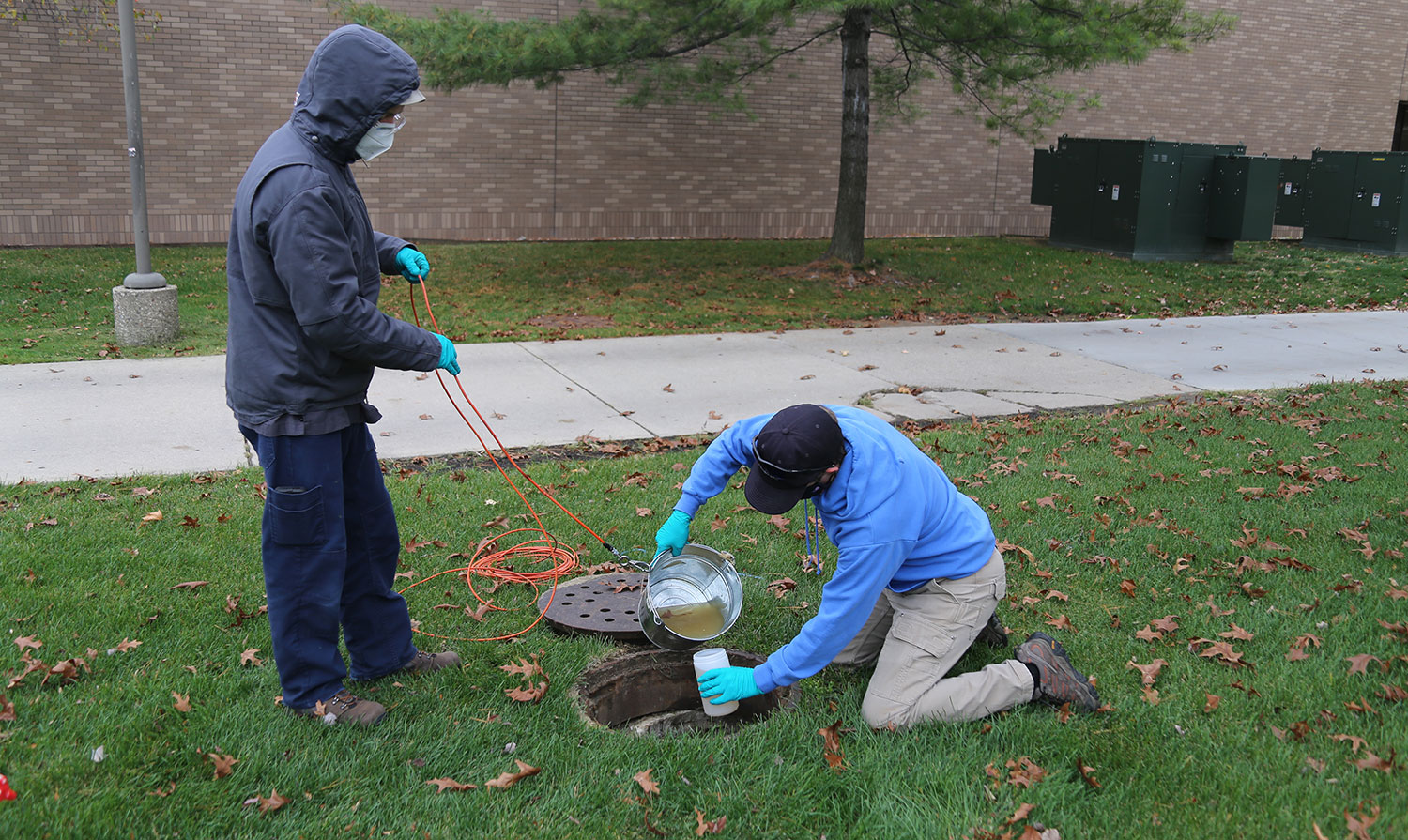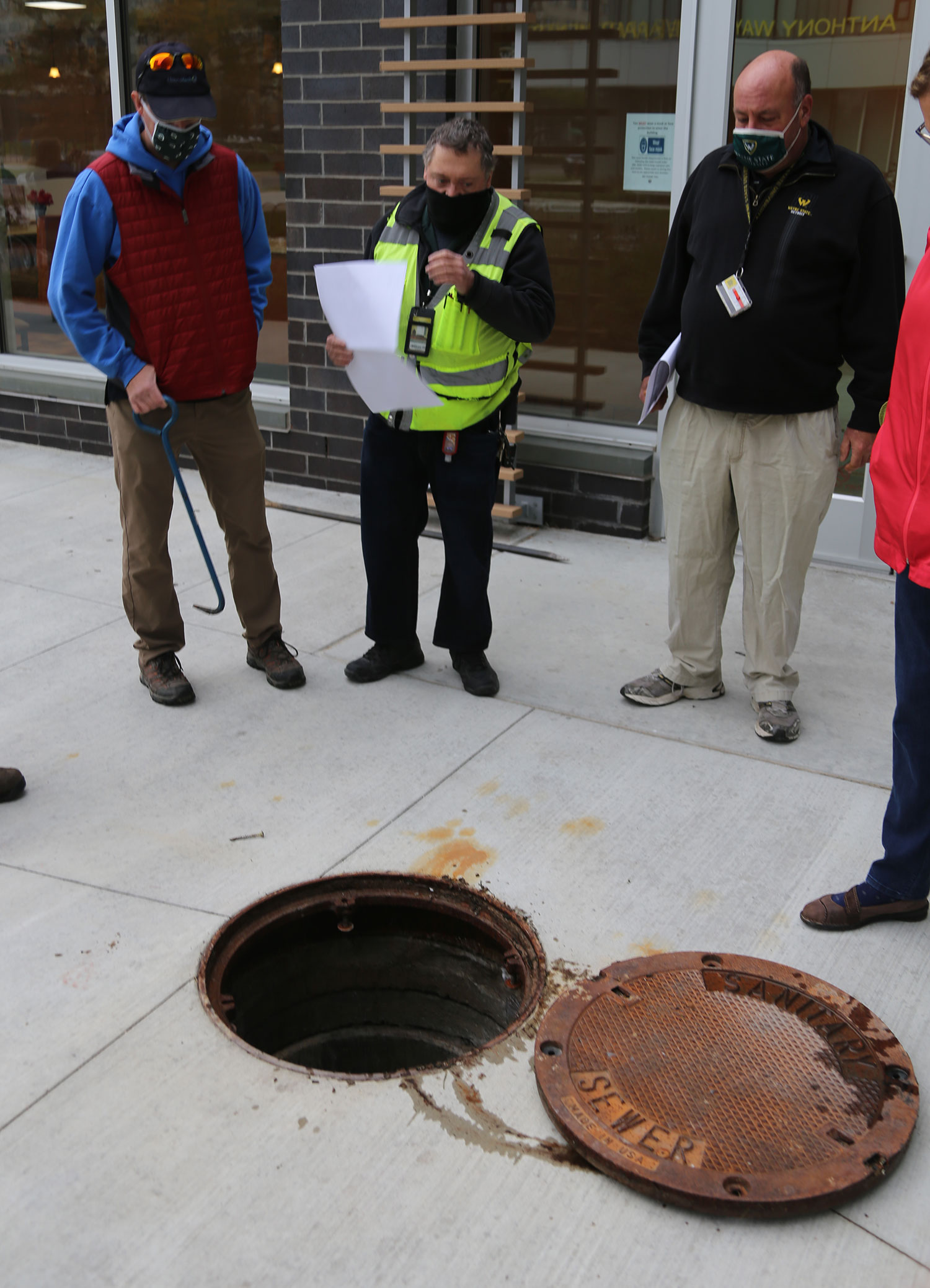Wayne State joins $10 million COVID-19 wastewater surveillance and testing project

Early detection of SARS-CoV-2 - the virus that causes COVID-19 - can greatly aid public health officials in identifying and controlling surges of this highly infectious disease. One method that is gaining momentum is identification of the virus in wastewater. Researchers at Wayne State University have joined a statewide coalition on a pilot project to better understand this approach.
Principal investigator William Shuster, professor and chair of civil and environmental engineering at Wayne State along with co-PIs Carol Miller, professor of civil and environmental engineering; Jeffrey Ram, professor of physiology in the School of Medicine; and a host of interdisciplinary researchers from across WSU, are monitoring and testing wastewater from campus dormitories and other locations in Midtown Detroit.
"How does the virus get into wastewater? When a person is infected, the virus not only affects the lungs; it often occurs in the gut and in such abundance that it sheds with fecal matter," said Shuster. "By searching in wastewater, we can often detect and track the virus as it moves through our habitations. This is especially important in managing COVID-19 in congregate housing, like a university dorm, where residents are in close proximity and the virus can spread more easily."
"This project highlights WSU's commitment to its urban mission and the surrounding community. Project findings will ensure early notice of significant changes in the viral loading to our sewer network," said Miller. "As with all community projects we pursue, research findings will be shared throughout the community and more broadly. In this way, the benefits extend far beyond our campus."
Wayne State received more than $300,000 to fund its field research and analysis for the three-month pilot program. The State of Michigan also purchased state-of-the-art analysis equipment for grantees to ensure that the same protocols are used across the state and the data are as comparable as possible amid a variety of circumstances.
"We are excited to use this new equipment and to share technical insights with colleagues across the state in this project, which has the potential to detect current disease and direct responses to new outbreaks as we move into a post-vaccine era," said Ram, who heads the analytical lab for the project.

The team partnered and coordinated with colleagues in Wayne State's housing and facilities management departments to identify and access sampling locations, including the buildings' main septic cleanouts and manhole-accessible sewer lines. Assistance was provided by Limnotech, an Ann Arbor-based engineering firm, to conduct twice-weekly samplings of wastewater from sewers that drain four housing units - Anthony Wayne Apartments, Atchison Hall, Towers Residential Suites and University Tower - and from local sewersheds, defined as geographical areas that drain to certain sewers, in Midtown Detroit, including the Detroit Medical Center.
Samples are taken to the School of Medicine where analyses indicate how much viral material is in the wastewater. The effort produces baseline data through an anonymous approach to tracking spread. Each housing facility has space reserved for isolation and quarantine, and these changing censuses are compared to how much SARS-CoV-2 material is in the wastewater.
"The pace of the project has been demanding, as the grant started at the beginning of October and ends Dec. 30. Given this timeframe, the results are largely retrospective," said Shuster. "However, we can start to see patterns indicating that the infection management actions taken by our exceptional colleagues in Facilities, Housing and at Corvias - such as widespread testing, and the quarantine and isolation measures in dorms - seem to be working to keep campus COVID-19 numbers down. In this way, we gain knowledge about managing this highly infectious virus in congregate settings."
The $10 million grant program was funded from the state's allocation of federal money under the Coronavirus Aid, Relief and Economic Security Act (CARES). The pilot studies are being operated by numerous local health departments and labs, as well as 125 university and municipal partners. Michigan's Department of Environment, Great Lakes and Energy (EGLE) maintains a webpage to provide an overview of the project and available testing data.
Wayne State's team works in cooperation with the WSU Campus Health Center, WSU's Public Health Restart Committee, the Detroit Water and Sewer Department, Detroit Health Department, and other local officials.
Additional Wayne State investigators include Rodrigo Fernandez-Valdivia, assistant professor of pathology; Lance Gable, associate professor of law; Ikuko Kato, professor of oncology; Phillip Levy, professor and associate chair for research in the Department of Emergency Medicine; Shawn McElmurry, associate professor of civil and environmental engineering; Philip Pellett, chair of the Department of Microbiology, Immunology and Biochemistry; and Yongli Zhang, associate professor of civil and environmental engineering.